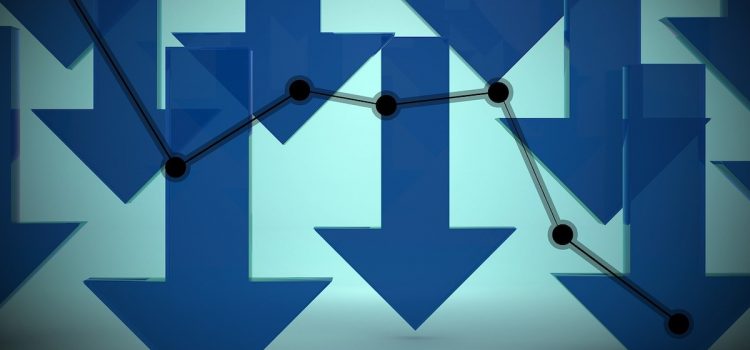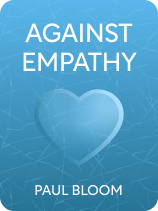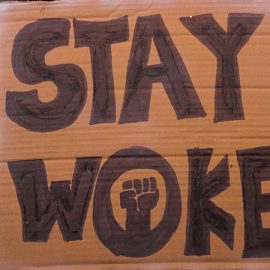

This article is an excerpt from the Shortform book guide to "Against Empathy" by Paul Bloom. Shortform has the world's best summaries and analyses of books you should be reading.
Like this article? Sign up for a free trial here.
When is kindness not in harmony with morality? Why is empathy unsustainable?
Yale psychologist Paul Bloom makes a case against empathy—specifically, emotional empathy. He argues that emotional empathy reinforces our biases, motivates actions that are kind but morally wrong, prioritizes individuals over groups, wears us out, and even motivates violence.
Continue reading to learn about the downside of empathy.
The Downside of Empathy
Though many people think that society suffers from a shortage of empathy, Bloom argues that more empathy wouldn’t make the world a kinder place. He concedes that, in studies and some real-world situations, experiencing empathy for other people can make us kinder people, even though we do an imperfect job of understanding others’ feelings. But, he writes that morality requires more than empathy and that we have more effective ways to be kind and compassionate. He discusses five areas that illustrate the downside of empathy.
It’s important to note that, when Bloom writes that empathy is an inadequate guide for our judgments and decisions, he’s talking about emotional empathy as opposed to cognitive empathy. Emotional empathy involves feeling someone else’s emotions and simulating their experiences. Cognitive empathy entails a more distanced appreciation of someone else’s experiences; it involves understanding the emotions someone else is experiencing without experiencing them yourself. Bloom doesn’t oppose the practice of cognitive empathy.
| Does Empathy Motivate Kindness? Bloom’s theory that empathy is unnecessary to motivate kind behavior runs counter to other experts’ theories. Many psychologists consider empathy an “umbrella trait” that’s necessary for the development of kindness, cooperation, and tolerance and motivates us to behave in ways that benefit other people. Decision-making is a complex process where we weigh alternatives and choose how to act, using both emotions and reason to make decisions. While Bloom argues that empathy is a poor guide for our moral decisions, he doesn’t address the possibility that we could feel motivated by empathy and then channel that emotion into decisions guided by rationality. Experts say that even the most emotional person uses rational thought when making a decision, and the most rational person’s choices are affected by emotions, too. |
Bloom says that one way to make moral decisions without relying on empathy is to adopt the philosophy of “consequentialism,” an ethical theory that suggests we consider the likely outcomes of our actions and try to make decisions that will achieve the best results. Bloom argues that when we consider decisions this way, we can see that the consequences of empathy are often negative.
(Shortform note: Some psychologists disagree with Bloom’s idea that empathy doesn’t make us more moral or good. In Focus, psychologist Daniel Goleman defines empathy as tuning in to others and feeling what they feel, and in Emotional Intelligence, he writes that the ability to understand other people’s emotions makes you a better person. That’s because when you understand someone else’s suffering, you recognize their situation as one with moral weight—and feel a moral imperative to alleviate the other person’s suffering and avoid causing them pain.)
Because we can’t predict what will happen in the future, actions motivated by empathy can have unintended consequences. Bloom writes that empathy leads to bad decisions and decisions that result in bad outcomes. For example, you might feel bad for a friend at work who was passed over for a promotion and put in a good word for them with your boss. If they get a promotion and turn out to be a terrible manager, that’s an unintended bad outcome for your friend and the people they manage.
(Shortform note: It’s often difficult to predict the likely consequences of a given decision. But in Smarter, Faster, Better, journalist Charles Duhigg writes that you can increase the accuracy of your predictions using probabilistic thinking. This involves outlining the possible consequences of your decision, estimating the odds of each scenario playing out, and then deciding how to proceed. The process can’t prevent unexpected bad outcomes from occurring, but it can help you increase the chances that your decisions will have favorable outcomes.)
Bloom also argues that we can observe many shortcomings of empathy in the negative consequences it creates for the quality of our decisions and their outcomes. Next, we’ll explore some of the negative ways that empathy can influence our decisions and actions.
#1: Empathy Reinforces Our Biases
First, empathy predisposes us to favor the people with whom we most strongly identify—those who are related to us, similar to us, and psychologically close to us—so it can prejudice us against people who are different or distant from us. Similarly, whether we feel empathy for someone is influenced by what we think about the person and how we judge their situation.
(Shortform note: Researchers have observed an “ingroup bias”—a bias toward people who share our identity or interests—in many aspects of our social behavior, including empathy. For example, neuroscientists have found that our brains respond more empathetically when we observe pain in someone who shares our race versus in someone of a different race. This bias can lead us not only to treat others unfairly but even to perceive the same behaviors or situations differently depending on the groups to which someone belongs.)
Prejudices and biases are a problem because, according to Bloom, impartiality is the core of all moral systems. Though few people would choose a moral system of total impartiality—most of us think it’s correct that we care more about people who are close to us than about strangers—empathy’s biases make us less able to make fair moral judgments.
| Does Empathy Make Us More or Less Fair? Many thinkers consider impartiality a core part of treating others fairly. This includes philosopher John Rawls, who explains in A Theory of Justice that citizens’ representatives should operate with a “veil of ignorance,” or a lack of knowledge about the traits of the people they represent, as this knowledge might otherwise influence their decisions. That way, they can advocate for an impartial vision of justice that benefits everyone, ignoring their own biases and background. Some experts agree with Bloom that empathy can bias our treatment of other people, like psychologist Daryl Cameron, who notes that empathy can prompt us to favor an ingroup over an outgroup. But some psychologists say that empathy can help us to mitigate our biases. Researchers have found that empathy can help us adopt more positive attitudes toward stigmatized groups—like people with disabilities or HIV—and it can help us to build positive relationships with people we may be prejudiced against. |
#2: Empathy Motivates Actions That Are Kind But Not Morally Right
Bloom writes that a second shortcoming of empathy is that it motivates us to alleviate suffering in the short term by taking actions that may have negative consequences for the person we’re trying to help, or even an entire group of other people, in the long term.
(Shortform note: The negative consequences Bloom notes are particularly evident in foreign aid projects (to which many people contribute out of a sense of empathy). In The Great Escape, economist Angus Deaton argues that aid corrupts governments and rarely reaches the people most in need. Similarly, the white savior mentality behind many projects can exert harmful effects like putting local farmers out of business, prolonging wars, and fostering dependency. According to historian Nimisha Barton, the white savior complex is itself an empty form of empathy, one that traps its target into a “victim” role, denies them agency, and elevates the empathizer as a hero.)
One reason that actions motivated by empathy aren’t always moral is because empathy is often arbitrarily focused. Bloom points out that we don’t look logically at where we could do the most good. Instead, we allow our attention and preferences to dictate how we direct our empathy. This is why the actions that empathy motivates may not be the morally right course of action, even though they’re kind.
For example, parents motivated strongly by empathy may try to avoid causing their children to suffer in the short term and fail to keep longer-term priorities in mind. The action that’s the most loving and intelligent (and morally right) is to require a child to go to the dentist or do their homework, even if it causes pain or frustration at the moment.
| How Can We Keep Our Empathy on the Right Track? Because of what Bloom describes as the arbitrary focus of empathy, some experts recommend being very intentional about the decisions you make out of empathy. In Atlas of the Heart, Brené Brown writes that if you empathize by imagining yourself in another person’s place, then you’ll be affected by your own biases and preferences. She advises that if you can understand and accept the other person’s feelings (even if they’re different from what you would feel in a similar situation), you can prevent your biases from affecting how you relate to them and interpret their situation. Taking an intentional approach can also help you in roles like parenting, where empathy feels unavoidable. Economist Emily Oster, author of Expecting Better and Cribsheet, advocates for parenting that balances your family’s long-term “mission”—your most important values and priorities as a family—against short-term concerns, which might help you make rational decisions about how to raise your children. |
#3: Empathy Is Limited in Focus
A third flaw of empathy is that empathy is easier to feel for one person than for multiple people and difficult to feel for a group, so empathy biases us toward decisions that prioritize an individual over a group. That’s less than optimal if prioritizing the needs of one person results in negative consequences for others.
(Shortform note: Our trouble empathizing with groups of people is often attributed to a phenomenon called “psychic numbing.” Experts explain that our brains aren’t good at thinking about, let alone empathizing with, millions or billions of people. For example, as the number of victims of a tragedy increases, our ability to empathize decreases. Empathy also feels like a limited resource: Empathizing with one person leaves us less empathy to give to someone else. This may be one mechanism underlying the “ingroup bias” that makes us empathize more with people who are similar to us than those who are different.)
#4: Empathy Is Exhausting
Fourth, empathy can be onerous to experience and sustain: Bloom writes that people who put others’ needs before their own or are otherwise highly empathetic can experience negative consequences, like feeling upset about other people’s pain or being in relationships where they don’t receive as much care as they give. This happens because empathy involves suffering when other people are suffering, which not only feels distressing but can also impair our ability to help the person who is suffering.
(Shortform note: Some people—like doctors, nurses, therapists, and first responders, whose work involves caring for others—experience “empathy fatigue” as a result of the trauma they witness. But in other contexts, experts don’t all agree that high levels of empathy are debilitating; for example, psychologist Simon Baron-Cohen suggests that people with high empathy simply have an intuition for understanding how others feel. Yet when empathy takes a toll, compassion can serve as an alternative. Some psychologists define compassion as feeling empathy plus taking action to alleviate the other person’s pain. Taking action can help you to reinforce a healthy boundary between yourself and others.)
#5: Empathy Motivates Violence
A final flaw of empathy is that it can motivate us to behave aggressively to protect someone who has been wronged. Bloom writes that empathy can even motivate us to engage in conflict on behalf of the victim of violence or injustice.
He offers the example of how white people in the American South empathized with white women allegedly raped by Black men and responded with lynchings and other forms of violence. (Shortform note: Philosopher Kathryn Norlock disputes Bloom’s view that lynchings of Black men occurred as a result of empathy for white women. She writes that, instead, lynchings were motivated by a desire to maintain white supremacy. Many lynchings occurred without the “excuse” of a rape allegation, and Norlock argues that Americans have historically not been particularly empathetic to women who have experienced rape.)
(Shortform note: Empathy plays a morally ambiguous role in our behavior, according to philosopher Fritz Breithaupt, who wrote The Dark Sides of Empathy. Like Bloom, Breithaupt believes that we sometimes behave cruelly not due to a lack of empathy but due to a misuse of it. He warns that empathy can polarize people, make them more suspicious of others, and activate extremist thinking. However, unlike Bloom, Breithaupt considers empathy more positive than negative: He writes that we can learn to use empathy judiciously and prevent it from being manipulated.)
Exercise: Are You For or Against Empathy?
Bloom argues against empathy as a guiding principle for moral decisions. But he acknowledges that his perspective is unusual, and other thinkers have different views of empathy.
- Do you agree or disagree with Bloom’s idea that empathy does more harm than good in our relationships with other people? Why or why not?
- Think about a time when you felt empathy for someone else. Describe the situation below.
- In the situation you recalled, how did the feeling of empathy affect your thinking or your behavior?
- Do you think you would have responded differently if you’d focused on using rational compassion instead of empathy? How so?

———End of Preview———
Like what you just read? Read the rest of the world's best book summary and analysis of Paul Bloom's "Against Empathy" at Shortform.
Here's what you'll find in our full Against Empathy summary:
- How the conventional understanding of empathy gets it wrong
- How empathy can motivate us to act in unjust, irrational, and cruel ways
- Why we should practice rational compassion instead of empathy






